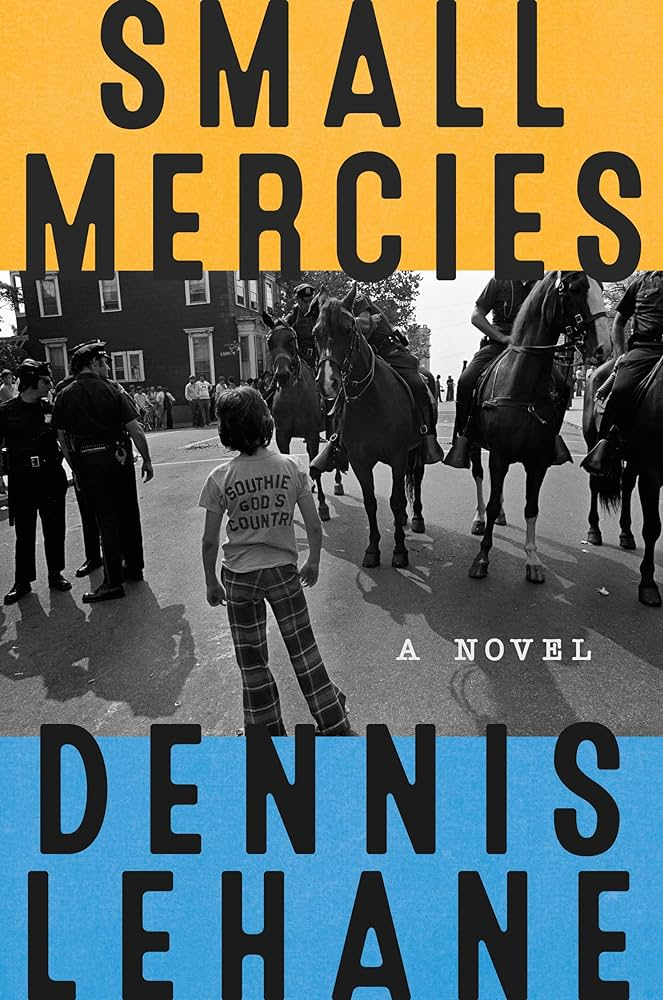But never before Lehane’s latest, Small Mercies, has a neighborhood stood so stubbornly at the center of the narrative. Small Mercies begins in August 1974, just as South Boston erupts with violence, rage, and massive resistance to the racial desegregation of Boston’s public schools. As the first buses rolled into the neighborhood carrying Roxbury schoolchildren, enraged Southie residents hurled torrents of rocks and bricks at the buses and spat on the kids, while police in riot gear tried to restrain a mob shouting racial epithets and carrying signs that said “n——s go home.” White parents chose mass truancy over compliance. Photos of the violence in Southie—coupled with the searing image of a white anti-busing protester at City Hall Plaza trying to stab Black lawyer Theodore Landsmark with an American flag—cemented Boston’s reputation as the most racist city in America. And the South Boston Irish became Exhibit A for the city’s unmasked and unhinged bigotry.
Though an all-white, fully autonomous School Committee had long bused thousands of Boston school children out of their neighborhoods to preserve unconstitutional segregation in the city, South Boston whites knew little of Boston’s history of institutionalized school inequality or the decade Black organizers like Ruth Batson and Mel King had spent fighting to dismantle it. Thus, Garrity’s decision landed like an unprovoked, targeted hit from an elitist suburban judge. Southie mothers formed resistance groups and rallied around local gangsters like the infamous Whitey Bulger, hailed as Southie’s protector against the encroachments of Wellesley liberals and Roxbury druglords. (Of course it was Bulger, not Black schoolchildren, who would bury Southie in heroin and gun violence over the next decade.)
Small Mercies casts readers into the eye of this perfect storm. Mary Pat Fennessy, a white single mother in Southie’s Commonwealth projects, learns of the disappearance of her 17-year-old daughter, Jules, on the same night a Black teenager from Roxbury, Auggie Williamson, is killed by a train in a South Boston subway station. Mary Pat recognizes Auggie as the son of a coworker, Calliope, though the two mothers hardly know each other.
